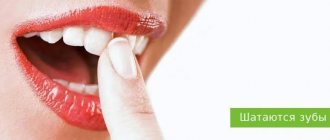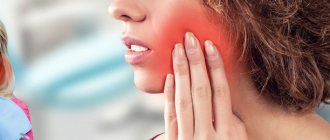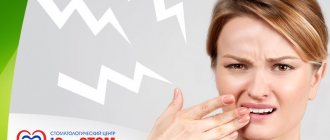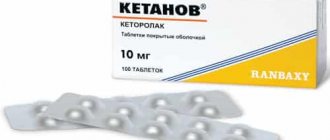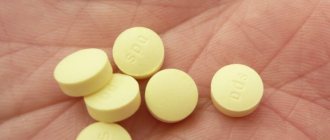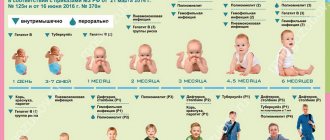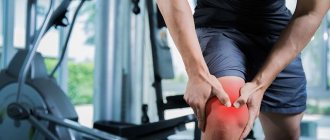Many people know what toothache is. Sometimes its intensity increases to such an extent that it is simply impossible to endure the torment. Often this problem occurs at night, when it is not possible to immediately go to the dentist. In this case, you have to use various painkillers and other medications. Previously, dental drops, which can be purchased at almost any pharmacy, were especially popular. Do they really help relieve pain?
Compound
Preparations in the form of drops have a weak and moderate therapeutic effect regarding toothache. Most often, preparations are made based on natural remedies - peppermint, valerian and camphor. They not only reduce the intensity of pain, but also have anti-inflammatory and antimicrobial effects. Salicylic acid, ethyl alcohol or glycerin can be used as an additional component in the drops.
In combination, all components have several therapeutic effects:
- relieve the symptoms of pain, so that a person can carry out everyday activities;
- inhibit the activity of pathogenic flora and prevent the rapid development of caries;
- reduce the intensity of soft tissue inflammation.
The drug cannot be used as a treatment for dental disease, despite its wide spectrum of action. A person should consult a doctor at the first opportunity, even if the signs of discomfort in the mouth are no longer bothersome.
What are they made of?
The main advantage of these drops is that they consist only of natural ingredients. Today there are many variations of drops, but the base is almost always the same:
- Camphor extract. Destroys pathogenic microorganisms in the oral cavity, fights the inflammatory process.
- Valerian. Has a mild sedative and analgesic effect.
- Peppermint. It dampens pain and has a natural antibacterial effect.
- Glycerol. Necessary to create a slight viscosity.
Additionally, additional ingredients may be present.
Comparative characteristics of drops and tablets
Which is better: dental drops or painkillers? To answer the question, it is necessary to consider a comparative table of drugs according to several main criteria.
| Criterion | Drops | Pills |
| Compound | Mostly herbal ingredients are added to the drug | Contain chemical compounds with a potent effect (paracetamol, ibuprofen) |
| Therapeutic effect | 5-10 minutes after application | 15-20 minutes after administration |
| Possibility of use during pregnancy | Can be used with the consent of a doctor | Contraindicated in the early stages of pregnancy |
| Side effects | Mostly well tolerated by patients. In rare cases, abdominal pain may occur | They provoke irritation of the mucous membranes of the stomach and lead to exacerbation of chronic forms of gastritis and ulcers. Excessive consumption may cause liver and kidney dysfunction. |
As can be seen from the comparison table, drops are considered safer for health than tablets. For this reason, the drug is often prescribed to relieve toothache in children and pregnant women.
Operating principles
The effectiveness of dental drops is expressed in:
- calming or sedative effect;
- antiseptic effect;
- analgesic effect;
- anti-inflammatory and disinfectant effects.
The drops have not only an anesthetic, but also an anti-inflammatory effect
This is achieved due to the presence in the preparation of active components of plant origin, as well as alcohol, hydrochloride, lidocaine, salicylic acid, camphor and sometimes other substances.
Composition of drops
At the same time, there are no harmful substances that are contraindicated for pregnant women at any stage of pregnancy. That is why drops can be purchased without a doctor's prescription.
Dental drops have some advantages even over pain pills, which are usually used to relieve toothache.
Table. Differences between drops and tablets for pain
Dental drops | Pills |
| Fast analgesic effect | The need to wait for the effect to occur 30-60 minutes after taking the pill |
| Also has antiseptic and bactericidal effects | No antiseptic or bactericidal effects |
| The substances that make up the drops have a detrimental effect on the source of infection | The infection cannot be controlled with pills, they only stop its main symptom – pain |
| Not contraindicated for pregnant women | Most often contraindicated for pregnant women |
As a rule, the drops contain valerian tincture - it is their main component. Thanks to it, a calming effect occurs and pain is reduced.
Valerian officinalis
The bactericidal and antiseptic effects are provided by the camphor oil contained in the drops.
Camphor oil
Peppermint or other herbal ingredients help disinfect the oral cavity. It is thanks to disinfection that the development of infection can be stopped, and the microbes that caused it die.
Peppermint
Since the drops are applied to the surface of the diseased tooth, the active substances from them immediately react, penetrating into the site of inflammation instantly.
And, what is very important, such a drug is included in the category of the least dangerous drugs, and it is not dangerous during pregnancy.
Types of dental drops
Dental drops are produced by several pharmaceutical companies located in Tula, Yaroslavl and Ivanovo. Basically, all products produced have a similar composition and differ only in name. The composition of the medicine for the relief of toothaches usually includes: camphor oil (disinfects the oral cavity and prevents infection of soft tissues and neighboring teeth); peppermint oil (cools the gums, thereby reducing their pain, relieves swelling during gingivitis and periodontitis); valerian tincture (has a sedative effect on the body, reduces the severity of inflammation).
Drops are sold in pharmacies in bottles of 10-100 ml. Each bottle is equipped with a pipette for precise application of the drug to the problem area. How much do the drops cost? The average price of a medicine is from 15 to 40 rubles.
Below we will consider the best drops that help eliminate toothache without harm to health:
- Phytodent. The product consists of natural ingredients such as calamus, calendula and chamomile.
- Denta. The drug is suitable for eliminating severe pain associated with pulpitis and deep caries.
- Dentinox. The drops contain lidocaine and are suitable for use during teething in infants.
- Stomagol. The medicine is used to relieve discomfort associated with infectious diseases of the oral cavity.
- Dantinorm. Used to alleviate the condition of the child during the formation of the primary occlusion.
Dantinorm - drops for teething in children
All of the above remedies provide only temporary pain relief. Only a doctor in a clinical setting can cope with the cause of the pathology. In any case, dental drops are not a panacea for the problem.
Teething in children symptoms
Teething is most often preceded by changes in the baby's behavior.
Signs that may signal the beginning of the process and should alert mom and dad:
- copious secretion of saliva, leading to a cough, as well as rashes around the mouth and on the chin;
- swelling, discoloration of the gums, anxiety of the child when touching them;
- restless sleep;
- problems with appetite up to complete refusal of food;
- increased body temperature;
- irritation of the gums, which the baby tries to scratch, putting everything that is within reach into his mouth;
- obvious signs of nervousness.
In some cases, the process of teething is similar to the manifestations of infectious diseases: it is accompanied by nausea, changes in stool, runny nose, and vomiting. To avoid possible complications, it is better to show the child to a pediatrician.
Indications for use
The drug in the form of drops is used to treat the surface of a diseased tooth and mucous membranes of the mouth.
Dentinox gel for teething
Indications for use of the medication:
- caries of any degree of neglect;
- periodontitis;
- gingivitis;
- stomatitis;
- dental interventions performed, after which discomfort is observed.
After taking the medication, you should consult a doctor. It is important for the dentist to tell you what painkillers were taken previously. This fact will allow the doctor to more accurately determine the cause of the problem and the degree of its neglect.
When is the best time for pregnant women to have their teeth treated?
If a woman took a responsible approach to pregnancy and had her teeth treated in advance, she still needs to visit the dentist regularly for preventive examinations. This will allow you to detect pathology at an early stage and use the safest treatment methods. When performing any dental procedure, not only the woman’s well-being matters, but also the duration of pregnancy. Each trimester has its own characteristics and risks that determine the choice of treatment method.
First trimester
1st trimester
– period
from 1 to 12 weeks
inclusive. At this time, the formation of organs and structures of the embryo occurs. The placenta does not yet protect the fetus well enough from external influences, and the woman’s body undergoes serious changes: hormonal, physiological, metabolic. Any interventions, including medications, can negatively affect the pregnancy process and the health of the baby.
If a pregnant woman has a toothache in the 1st trimester, treatment is carried out mainly using gentle methods
(ICON, ozone therapy, air abrasive method). For pulpitis, periodontitis, accompanied by acute pain and purulent discharge, local anesthesia based on articaine (Ultracaine, Melivastesin, Mepifrine, Skadonest) is used.
Second trimester
2nd trimester
– period
from 13 to 24 weeks
.
This is the safest time
for dental treatment, gum treatment, professional hygiene and other dental interventions. The tissues, organs, and systems of the fetus have already been formed; the placenta reliably protects the baby from external factors. All planned procedures are recommended to be performed during this period.
Third trimester
3rd trimester
– the period
from 25 weeks to childbirth
, quite difficult for a pregnant woman.
The stress on the body increases, the placenta becomes more susceptible to external factors. Treatment is carried out exclusively for acute conditions
that are dangerous for the mother and child. Planned procedures are postponed until the baby is born.
If there is a need for dental treatment in a pregnant woman, a new generation of anesthetics based on articaine is used. The components of these drugs do not penetrate the placental barrier, do not affect the uterine and placental blood flow, do not increase the tone of the uterus, and are safe for the expectant mother and child. An alternative to local anesthesia is treatment under sedation (during sleep).
Rules of application
To eliminate the discomfort associated with caries or pulpitis, you need to take dental drops according to the following scheme: a small piece of cotton wool is moistened in the solution and applied to the carious cavity for 5-10 minutes. After this time, the cotton wool is removed from the tooth and thrown away. If the integrity of the enamel is not compromised, then only the soft tissue around the problematic element is wiped with a swab.
For painful eruption of wisdom teeth in adults, the solution is used according to a different algorithm: a cotton swab dipped in the preparation is used to treat the inflamed gum or use it instead of a compress for 10-15 minutes.
For stomatitis, use an aqueous solution of dental drops. To do this, dissolve 10 drops of medicine in 200 ml of boiled water. Rinse your mouth with the prepared product for 1 minute. The mouth is treated in the same way in the presence of ulcers and erosions on the mucous membranes.
To eliminate signs of gingivitis, dental drops are added to tooth powder or toothpaste. After this, standard hygiene procedures are carried out.
The drug is sold in pharmacies without a doctor's prescription, as it has a minimal list of contraindications and side effects. A serious contraindication to the use of the drug is the presence of epileptic seizures, fainting and heart rhythm disturbances.
To get rid of swelling of the soft tissues of the mouth, which is observed against the background of dental problems, you need to take an antihistamine. For adults, Claritin, Suprastin are suitable, for children - Fenistil.
Pregnant
Toothache is quite common in pregnant women. The cause of this condition is hormonal imbalances and physiological changes in the body. The formation of the fetus requires a lot of calcium, and if the child does not get it from food, then he takes the necessary components from the mother. Because of this, pregnant women are more prone to developing caries and pulpitis. Untimely treated caries poses a threat not only to the woman, but also to the baby, since an infection from the oral cavity can spread throughout the body.
Many dental drops contain ethyl alcohol, which even in small doses can harm the fetus. Therefore, before using dental drops, a pregnant woman should consult a specialist.
For toothaches, pregnant women should not consume many types of potent drugs, as they can negatively affect the formation of the fetus. In this case, dentists recommend pain-relieving drops. The drug can also be used during lactation with the prior permission of the pediatrician and dentist.
For children
During the period of teething in children, it is better to give preference to gentle drugs to relieve unpleasant symptoms. Dental drops contain alcohol, so they are not recommended for use to relieve suffering in a baby. Alcohol can cause burning of the mucous membranes and their irritation. Before using any medicine for children, you should first consult with a specialist.
Instead of drops when teething, it is recommended to use special creams or ointments with a softer composition. The drugs are used 3 to 6 times a day, depending on the severity of pain symptoms. Medicines in the form of gels and creams are used for up to 3 years, as their use is more effective and safe.
Drops are more suitable for children over 3 years of age. They help relieve dental pain associated with caries. The disease often occurs in primary teeth, since they have more fragile and thinner enamel than the molars. Painkiller drops are allowed to be given to children only in emergency cases, for example, if going to the doctor in the near future is not possible.
Dental drops can be safely given to children over 12 years of age. There are practically no contraindications for use for this category of patients; the main thing is to follow all the rules outlined in the instructions for use.
Gels for teething in children
In addition to the Kholisal discussed above, there are a number of gels that effectively reduce the negative signs of the appearance of the first teeth:
- Kalgel.
Lidocaine, which predominates in the gel, cools the child’s gums, but has a short-term effect, which means the product must be applied frequently.
- Kamistad baby.
Operating through a pair of lidocaine hydrochloride plus chamomile, Kamistad baby quickly relieves pain and calms the baby.
- Baby doctor.
Homeopathic medicine of natural origin is in demand precisely because of its natural composition: plantain, chamomile, echinacea and calendula work well for children who reject chemical medicines.
- Pansoral – first teeth.
Another gel with a “green” composition (saffron, marshmallow, chamomile) is used to relieve pain in children from 4 months. It has no side effects, which means it is safe for babies.
- Dentol baby.
A cheap anesthetic based on benzocaine effectively relieves the pain that accompanies the appearance of children's first teeth.
- Dentinox.
The already proven combination of chamomile and lidocaine hydrochloride, present in Dentinox, is used not only by children, but also by adults (the appearance of wisdom teeth can also be very painful). The gel contains fructose, so it should not be used by people who have problems digesting sugar.
Drop substitutes
If there are no drugs at hand that can relieve toothache, then you can turn to traditional medicine. One of the effective methods is saline or soda solution. In order to relieve pain, you need 1 tsp. dissolve one or another substance in 1 glass of water. Rinse your mouth with the solution every 30 minutes until pain relieves. To make the solution work faster, you need to add 15 drops of ammonia to it.
Lard will help partially cope with toothache. To do this, just take a small piece of the product and apply it to the problem area. The pain will begin to subside after 5-10 minutes
How do they work?
The above components individually are not capable of leading to the desired result, but a complex of medicinal ingredients leads to a positive result. First of all, it is worth noting a decrease in the intensity of the inflammatory process. Active substances destroy microbes in the mouth, which are often the culprits of pain. Some components act on nerve endings, which leads to a reduction in pain.
Please note that this remedy cannot cure the cause of the pain. Dental treatment can only be performed by a dentist. Dental drops have a temporary effect, helping to cope with discomfort until you go to the doctor.
Patient reviews
Lera, 19 years old. Since childhood, my dad has had very fragile teeth: they quickly decay and are acutely sensitive to hot and cold food. Previously, he used painkillers to relieve suffering. Dad crushed the tablets and applied them to the problematic element. Over time, this method stopped helping. Now his only salvation is ordinary dental drops for 35 rubles. When discomfort occurs, dad applies a lotion with the solution to the aching tooth. He experienced relief of symptoms within 10 minutes.
Ilona, 29 years old. After childbirth, the sensitivity of the enamel became greatly aggravated. The peak of toothache occurred during the period when I was breastfeeding my baby. Many painkillers at that time were prohibited for use for me, as their components could pass into breast milk. I couldn’t go to the dentist because the toothache appeared on the weekend. My husband brought a bottle of liquid called “Tooth drops” from the pharmacy. I did not believe in the effectiveness of this product, since its price was only 30 rubles. I used the drops according to the instructions and after 10 minutes I noticed relief from my pain. I was pleasantly surprised by the result, because this inexpensive drug helped me no worse than powerful painkillers. I would like to immediately note that the drug can only be used in emergency cases, after which it is necessary to see a doctor.
Dental drops are a homeopathic remedy that effectively relieves signs of caries, pulpitis, gingivitis and other dental diseases. The drug not only has an analgesic effect, it effectively relieves inflammation and promotes the healing of wounds in the mouth. It is important to remember that medications only temporarily relieve toothache; to completely eliminate the problem, the help of a doctor is necessary.
What symptoms should you consult a doctor for?
Any acute inflammatory diseases of teeth and gums are subject to urgent treatment. Even the smallest carious cavity is a source of infection, potentially dangerous for the developing fetus. If a carious tooth is not treated in a timely manner, pulpitis and periodontitis may develop, accompanied by severe pain and other symptoms.
You should immediately go to the dentist if the following symptoms appear:
- tooth reaction to cold, hot, sweet;
- pain (sharp, aching, throbbing);
- bleeding gums;
- pain when biting, chewing;
- redness, swelling of the gums;
- bad breath;
- purulent discharge
Urgent help
necessary for injuries - fracture of the tooth root, chips, cracks of the coronal part, damage to the pulp.
In the normal course of pregnancy, in the absence of risk factors for the mother and fetus, treatment of emergency or potentially dangerous conditions is carried out at any stage (in any trimester). The main contraindication to treatment is the threat of miscarriage. Each trimester has its own characteristics that determine the choice of treatment method.
Possible causes of acute toothache
It is worth remembering the most common reasons:
- Caries. Bacteria destroy the surface of the tooth, resulting in a tooth reaction and discomfort when eating, eating sweets, or cold foods.
- Pulpitis. This is an inflammatory process that appears due to the fact that the patient did not treat caries in time. Pulpitis provokes acute toothache, which intensifies when drinking hot, cold drinks or food.
- Periodontitis. This is inflammation that occurs as a result of infection. Toothache has a pulsating form. It intensifies when mechanical stress is applied to the tooth.
- Periostitis. This is a special inflammation, it is accompanied by swelling of the gums. Afterwards, swelling and pain increase. Sometimes with periostitis, the upper jaw swells and the temperature rises. A pulsating toothache can be felt in the ears, eyes, and temples.
Emergency help
All parents are advised to have painkillers approved for their child on hand; they should be prescribed by the attending physician. Ibuprofen, Paracetamol or Nurofen are suitable for many. It is imperative to use children's analogues of medicines, since adults have too high a concentration and may be unsafe at an early age.
The following folk remedies can be used: prepare a decoction of sage tincture with the addition of regular soda. It is important to note that the liquid should not be too cold and not too hot. If there is a carious cavity in the tooth, you can insert a not very large cotton ball, previously soaked in mint oil, into it. Another popular way to reduce pain is to give a light massage of the ear from the side of the diseased tooth.
Until the very moment of visiting the dentist or the arrival of an ambulance, it is not recommended to place the baby in a horizontal position in order to reduce blood flow to the sore spot. It is preferable to sit the child up, this will also help reduce discomfort. There is no need to warm the cheek or wrap the child tightly in warm clothes, this will only lead to the pain intensifying.
Is it possible to do x-rays?
Contrary to popular belief, X-rays can be taken during pregnancy. For this purpose, computer radiovisiographs are used. The radiation dose received by the patient when using a visiograph is minimal. If possible, the study should be carried out in the 2nd trimester
, excluding cases where urgent help is required - severe, acute pain in the teeth during pregnancy. X-ray examination is carried out observing all possible means of protecting the fetus.
“Fighting” radiation on the visiograph, women calmly fly south to eat fruit and bask in the sun. Not knowing that during a 2-3 hour flight a person receives 20-30 μSv. This is a radiation dose equivalent to 10-15 images on a visiograph. Ionizing radiation differs from light rays only in wavelength and has a damaging effect only under certain conditions.

